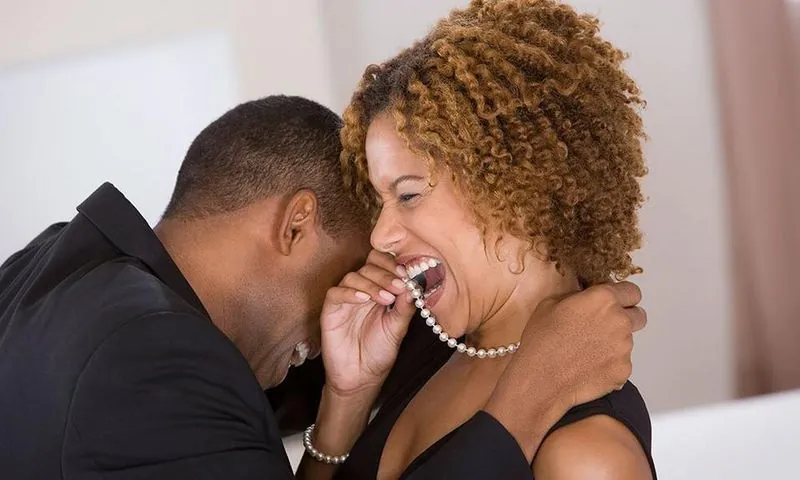Introduction
Nigerian dating myths debunked aims to clarify misconceptions that often cloud understanding of Nigerian dating culture. These myths can mislead singles and affect relationship dynamics. This article provides facts, real-life examples, and practical tips to help Nigerians and those interested in Nigerian dating navigate relationships more effectively.
Key Features of Nigerian Dating Myths Debunked
- Clear identification of common myths
- Evidence-based explanations and cultural insights
- Inclusion of real case studies from Nigerian singles
- Practical tips for respectful and successful dating
- Balanced view of pros and cons of traditions
- Simple English for easy understanding
Common Nigerian Dating Myths and the Truth Behind Them
Myth 1: Nigerian Men Don’t Commit
Truth: Many Nigerian men are deeply committed but express love and responsibility differently due to cultural expectations.
Myth 2: Nigerian Women Are Only Interested in Money
Truth: Nigerian women value respect, love, and partnership; financial stability is just one of many factors.

Myth 3: Dating Without Family Approval Is Normal
Truth: Family approval remains crucial in Nigerian dating culture and often influences relationship success.
Myth 4: Online Dating Is Unsafe and Full of Scammers
Truth: While risks exist, many Nigerians find genuine partners online by using safe practices and reputable apps.
Myth 5: Bride Price Is a Barrier to Marriage
Truth: Bride price is a cultural tradition symbolizing respect and union, not a transactional barrier.
Myth 6: Public Displays of Affection Are Always Taboo
Truth: Attitudes vary by region and generation; moderate displays are increasingly accepted in urban areas.
Myth 7: Age Differences Are Always a Problem
Truth: Age gaps are common and accepted when based on mutual respect and understanding.
Myth 8: Love Is Less Important Than Social Status
Truth: Love and emotional connection are vital, though social factors can influence dating choices.
Table: Summary of Nigerian Dating Myths and Realities
| Myth | Reality |
|---|---|
| Nigerian men don’t commit | Many are committed, culturally expressive |
| Nigerian women only want money | Value love, respect, and partnership |
| Dating without family approval is normal | Family approval is still important |
| Online dating is unsafe | Safe with precautions and trusted platforms |
| Bride price blocks marriage | Symbolizes respect and union |
| Public displays of affection always taboo | Varies; moderate PDA accepted in cities |
| Age differences always problematic | Accepted with mutual respect |
| Love less important than status | Love remains central despite social factors |
Case Studies: Real Experiences Debunking Nigerian Dating Myths
Case Study 1: Commitment Beyond Stereotypes
Chinedu showed deep commitment to his partner through family involvement and support.
Case Study 2: Financial Stability Not the Only Priority
Ada valued emotional support and respect over wealth in her relationship.
Case Study 3: Family Approval Strengthens Relationship
Ngozi’s relationship thrived after gaining family blessings early on.
Case Study 4: Successful Online Dating Story
Tolu met his wife through a reputable dating app, using safety measures.

Case Study 5: Bride Price as a Cultural Celebration
Olu’s bride price ceremony was a joyful family event symbolizing unity.
Case Study 6: Changing Attitudes Toward PDA
Amaka and Emeka comfortably express affection in Lagos, reflecting urban norms.
Case Study 7: Age Gap Relationship Success
Fatima and Musa’s 10-year age difference did not hinder their strong bond.
Case Study 8: Love Over Social Status
Ifeanyi chose love over social expectations, leading to a happy marriage.
Tips for Navigating Nigerian Dating Culture
- Respect family and cultural traditions while communicating openly.
- Use trusted platforms and verify profiles in online dating.
- Focus on emotional connection beyond financial or social status.
- Be patient and understanding of differing cultural attitudes.
- Balance modern dating trends with traditional values.
Pros and Cons of Nigerian Dating Traditions
| Pros | Cons |
|---|---|
| Strong family support and involvement | Pressure to conform to traditions |
| Clear expectations and commitment focus | Possible gender role restrictions |
| Rich cultural rituals and celebrations | Social stigma around non-traditional dating |
| Emphasis on respect and modesty | Potential delays in relationship progress |
| Encourages serious relationships | Challenges balancing modernity and tradition |
How Social Media Shapes and Perpetuates Nigerian Dating Myths
Social media platforms like Instagram, Facebook, Twitter, and TikTok play a significant role in shaping perceptions about dating in Nigeria. While they offer opportunities for connection, they also contribute to the spread of myths and stereotypes.
- Highlight Reels vs. Reality: Many users post idealized versions of relationships, creating unrealistic expectations.
- Viral Misconceptions: Popular posts or memes often exaggerate stereotypes about Nigerian men or women, reinforcing myths.
- Influencer Impact: Some influencers promote traditional or modern dating views, sometimes conflicting, confusing young singles.
- Online Dating Narratives: Stories of scams or failed relationships circulate widely, sometimes overshadowing positive experiences.
- Peer Pressure: Social media can pressure individuals to conform to perceived norms, affecting dating behavior and self-esteem.
Combating Myths Through Social Media Awareness
- Encourage sharing authentic, balanced relationship stories.
- Promote educational content about healthy dating and cultural diversity.
- Use social media to connect with support groups and dating experts.
- Foster critical thinking about online content and stereotypes.
Understanding Gender Stereotypes in Nigerian Dating
Gender stereotypes strongly influence dating perceptions and myths in Nigeria. These stereotypes often oversimplify complex behaviors and create unfair expectations for both men and women.
- Stereotype of Nigerian Men: Often portrayed as non-committal, financially driven, or unfaithful. This ignores the diversity of men who value loyalty, emotional connection, and responsibility.
- Stereotype of Nigerian Women: Frequently labeled as materialistic or overly demanding, which overlooks women’s varied motivations, including love, respect, and partnership.
- Impact on Relationships: These stereotypes can cause mistrust, miscommunication, and pressure to conform to societal roles rather than authentic selves.
- Changing Dynamics: Younger generations and urban Nigerians are challenging these stereotypes by embracing equality, open communication, and mutual respect.
Debunking Gender-Based Myths
- Commitment and fidelity are personal traits, not determined by gender.
- Financial support is one aspect of partnership, not the sole reason for relationships.
- Both men and women seek emotional intimacy and respect.
- Gender roles are evolving, with more shared responsibilities and decision-making.
How Economic Realities Shape and Influence Nigerian Dating Myths
Economic conditions in Nigeria significantly influence dating behaviors and the myths surrounding them. Understanding the economic context helps debunk misconceptions and provides a clearer picture of dating dynamics.
- Myth: Nigerian Men Must Always Be Financial Providers
Economic challenges mean many men struggle to meet traditional provider expectations, yet many still strive to contribute meaningfully in relationships. This myth overlooks the realities of unemployment, underemployment, and economic instability affecting young men. - Myth: Nigerian Women Date Only for Financial Gain
Economic hardships also impact women, who may seek financial stability but equally value emotional support and partnership. This myth unfairly reduces women’s motivations to materialism, ignoring their aspirations and contributions. - Economic Pressure and Relationship Stress
Financial strain can cause tension but also encourages couples to communicate and collaborate on budgeting and goals, challenging the myth that money always undermines relationships. - Changing Economic Roles
Increasingly, Nigerian women are breadwinners, and men participate more in domestic roles, reflecting evolving economic and social realities.
How Family and Community Influence Nigerian Dating Myths
In Nigeria, family and community play a central role in shaping dating behaviors and beliefs. Many myths about dating stem from traditional expectations and social pressures exerted by these groups.
- Family Approval is Mandatory Myth
While family approval is highly valued and often sought, not all Nigerian relationships require full family endorsement to succeed. Some couples navigate dating independently, especially in urban areas, balancing respect for family with personal choice. - Community Gossip and Reputation Myth
The fear of community judgment can exaggerate myths about dating behaviors, such as assumptions about promiscuity or dishonesty. This pressure sometimes forces couples to hide their relationships or conform to stereotypes. - Parental Control Over Dating Myth
It is often believed that parents strictly control their children’s dating lives. However, many Nigerian youths negotiate autonomy and communicate openly with parents, challenging this myth. - Matchmaking and Arranged Marriages Myth
While arranged marriages and family matchmaking exist, especially in certain ethnic groups, many Nigerians choose partners independently, blending tradition with modern dating.
How Religion Shapes and Challenges Nigerian Dating Myths
Religion is a powerful force in Nigerian society and significantly influences dating practices and beliefs. Many myths about dating stem from religious teachings or interpretations, affecting how singles approach relationships.
Myth: Religious Leaders Always Control Dating Decisions
While religious leaders offer guidance, individuals often make personal choices, balancing faith advice with their feelings and circumstances.Frequently Asked Questions (FAQs)
Myth: Religious Differences Always Prevent Relationships
While religion is important, many Nigerian couples successfully navigate interfaith relationships through mutual respect and compromise. Religion need not be a barrier if both partners communicate openly.
Myth: Strict Religious Rules Prohibit Dating
Some believe dating is forbidden in religious contexts, but many Nigerian faith communities encourage courtship with clear intentions and moral guidelines, blending faith with modern relationship needs.
Myth: Only Same-Faith Marriages Are Accepted
Though preferred by many families, interfaith marriages are increasingly accepted, especially in urban areas, reflecting changing attitudes.
Frequently Asked Questions (FAQs)

1. Are Nigerian men really non-committal?
No, many are committed but show love differently.
2. Do Nigerian women only date for money?
No, respect and emotional connection matter more.
3. Is family approval necessary in Nigerian dating?
Yes, it often influences relationship success.
4. Is online dating safe in Nigeria?
Yes, with proper precautions and reputable apps.
5. What is the purpose of bride price?
It symbolizes respect and formalizes the union.
6. Can couples show affection publicly in Nigeria?
It depends on location and cultural background.
7. Are large age gaps acceptable?
They are common and accepted when based on respect.
8. Does social status outweigh love in Nigerian dating?
Love remains central despite social factors.
9. How can I balance tradition and modern dating?
Respect traditions while communicating openly and adapting.
10. What should I watch out for in Nigerian dating?
Be aware of cultural expectations, scams, and respect boundaries.
Conclusion
Nigerian dating myths debunked reveals the truths behind common misconceptions, helping singles approach relationships with clarity and confidence. Understanding cultural nuances, respecting traditions, and embracing modern practices create a balanced and fulfilling dating experience in Nigeria.